Symposium on Appliable Linguistics and Legal Discourse Held
On May 20, 2023, the Symposium on Appliable Linguistics and Legal Discourse, co-organized by Shanghai Jiao Tong University’s Martin Centre for Appliable Linguistic (“Martin Centre” hereafter) and China Association of Forensic Linguistics, China Association for Comparative Studies of English and Chinese (“China Association of Forensic Linguistics” hereafter) was successfully held. Over 80 experts, scholars, and students at home and abroad joined the symposium to discuss interdisciplinary topics such as social semiotic theories and appliable studies, functional linguistics, and legal discourse studies.
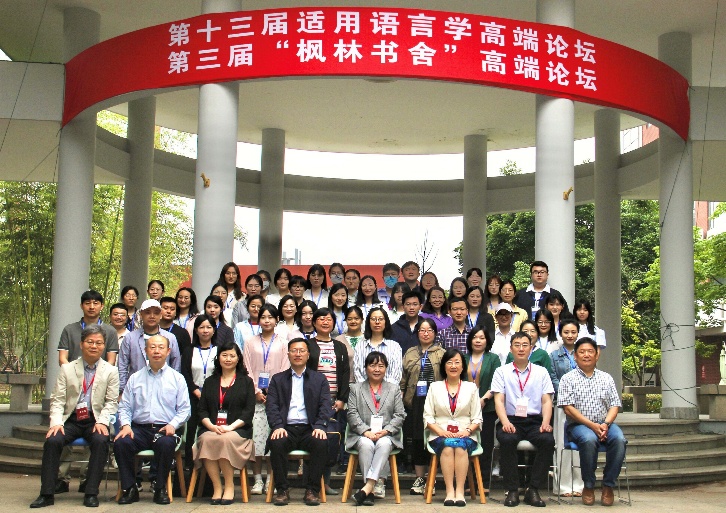
The opening ceremony was hosted by Prof. Wang Zhenhua, Director of the Martin Centre, where he invited Prof. Chang Hui, Dean of the School of Foreign Languages, Shanghai Jiao Tong University and Prof. Yu Suqing from East China University of Political Science and Law, who is the president of China Association of Forensic Linguistics, to deliver opening speeches. After taking group photos, eleven experts from China and abroad gave plenary talks at the symposium.
Prof. Edward Finegan from University of Southern California joined the symposium online and gave the first plenary talk, which was entitled “Deposition Testimony by Expert Linguists in U.S. Civil Litigation: A Challenging Genre”, where he introduced the legal system in the US and studied the language of expert depositions by linguists. The plenary talk was chaired by Dr. Wang Pin.
Prof. Zhu Keyi from Fudan University gave a plenary talk with the title “The Meaning Construction of Rhetorical Competence”, and the talk was chaired by Prof. Zhang Falian. Prof. Zhu Keyi analyzed the process of meaning construction of rhetorical competence using the theory of intertextuality, and explored the functions of rhetorical competence within historic space and time.

The plenary talk delivered by Prof. Zhang Falian from China University of Political Science and Law was entitled “How to Tell China’s Stories of the Rule of Law”, and was chaired by Prof. Zhu Keyi. Prof. Zhang Falian highlighted the significance of publicizing and introducing China’s rule of law and relevant laws and regulations, and discussed the theoretical and practical efforts needed for the endeavor.
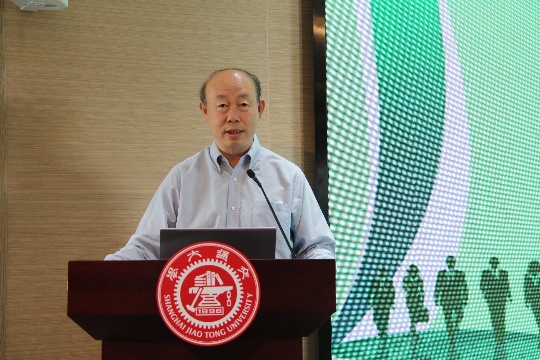
Prof. Janet Ainsworth from Seattle University gave a plenary talk online with the title “Linguistic Issues in the Law of Product Safety Warnings: How Linguistic Research Could Improve the Law’s Response to Dangerous Consumer Products”, and pointed out that Linguistic research analyzing product warnings could assist the legal system both in requiring effective safety warnings and also in upholding justice. The plenary talk was chaired by Dr. Yang Xiran.
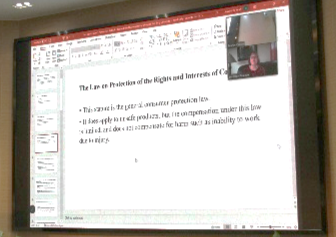
Prof. Yu Suqing from East China University of Political Science and Law presented a plenary talk entitled “Studies on Speeding up the Construction of China’s Discourse System and Narrative System of the Rule of Law”, and the talk was chaired by Prof. Yuan Chuanyou. Prof. Yu Suqing highlighted the importance of the construction and publicity of China’s discourse system and narrative system of the rule of law in Chinese modernization and introduced relevant studies.
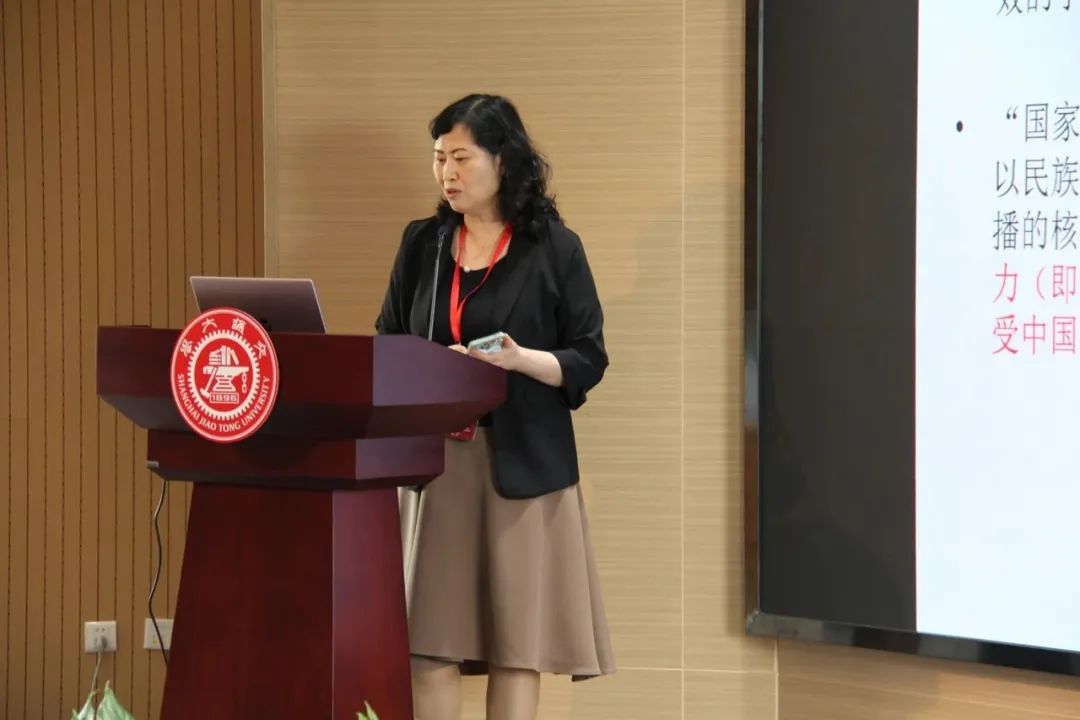
Prof. Zhang Qing from China University of Political Science and Law gave a plenary talk entitled “A Review on Studies of Judge’s Discourse in China in Recent Ten Years”, which was chaired by Prof. Ge Yunfeng. Prof. Zhang Qing introduced the characteristics of studies of judge’s discourse and the new developments brought about by information technology, and proposed new prospects and expectations for future research.
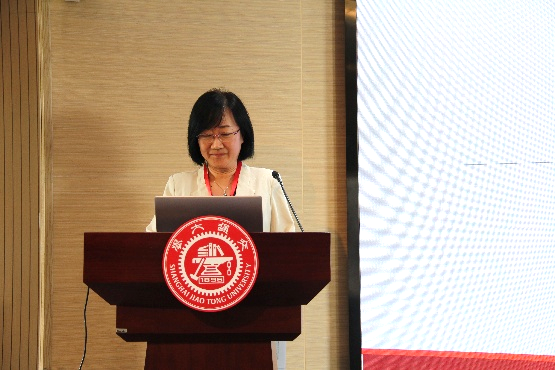
Prof. Ge Yunfeng from Shandong Normal University presented a plenary talk entitled “Studying Online Judicial Public Opinion Discourse”, which was chaired by Prof. Zhang Qing. With online judicial public opinion discourse as the object of study, Prof. Ge Yunfeng employed the appraisal theory to analyze the features of public opinions, and discussed the sociocultural factors that may influence the spread of online judicial public opinion discourse.

In the afternoon, Prof. Yuan Chuanyou from Guangdong University of Foreign Studies gave a plenary talk with the title “The Interactions between Functional Linguistics and Forensic Linguistics: With the Functional Linguistic Analysis of ‘Legal Institution’ and ‘Rule of Law’”, and the talk was chaired by Prof. Yu Suqing. Prof. Yuan Chuanyou reviewed the interactions between functional and forensic linguistics, examined a theoretical growth point and analyzed the functional linguistic path from the ‘legal institution’ to the ‘rule of law’.
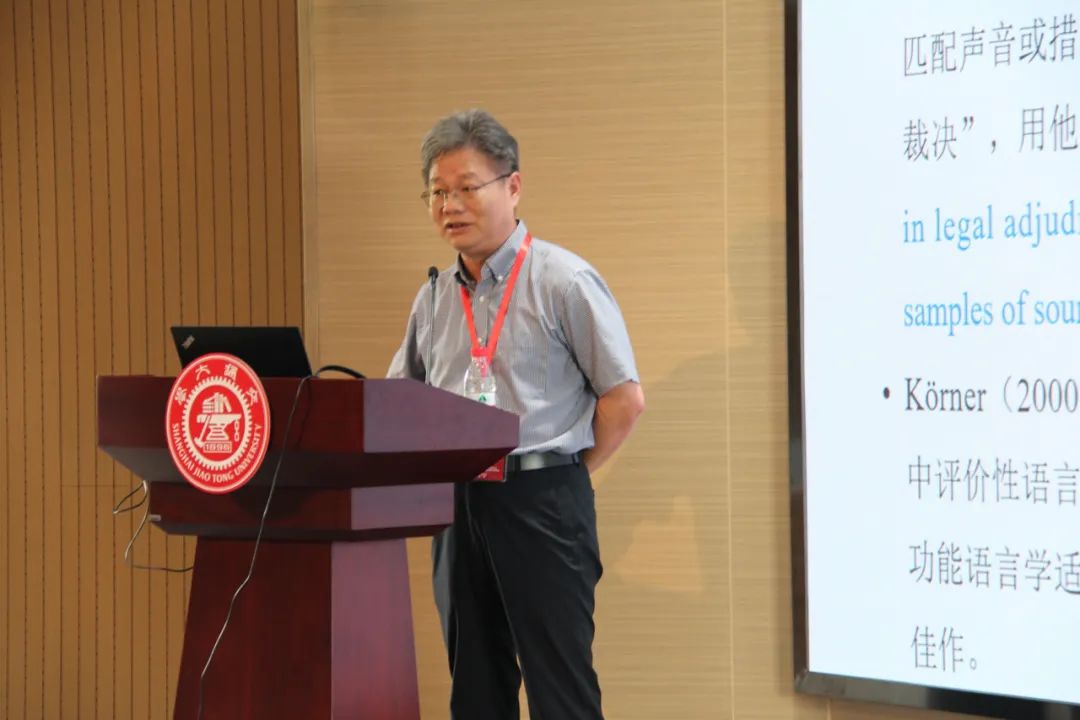
Judge Liu Jing from Shanghai Third Intermediate People's Court presented a plenary talk with the title “The Language Phenomena in the Practice of Litigation and Mediation”, which was chaired by Prof. Wang Zhenhua. Judge Liu Jing focused on the linguistic phenomena that arise from the practice of litigation and mediation, and analyzed them by drawing upon practical experiences.
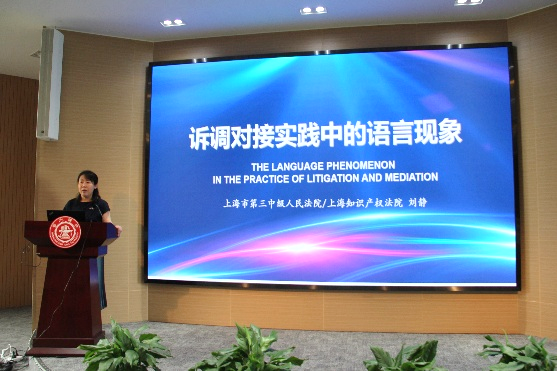
Prof. Monwabisi K Ralarala from Cape Peninsula University of Technology gave the plenary talk “Transpreters’ Translations of Complainants’ Narratives as Evidence: Whose Version Goes to Court?” online, and the talk was chaired by Prof. Wang Zhenhua. Prof. Ralarala analyzed transpreters’ translations of complainants’ narratives under the multilingual background in South Africa, and discussed the serious implications of the misrepresentation of the complainants’ words.
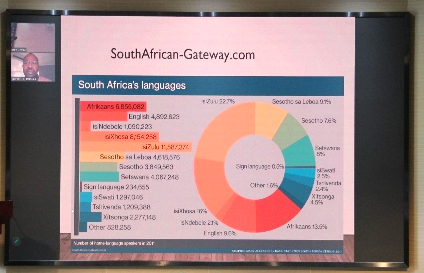
The last plenary talk “‘Human-Speech-Action’, As a Complex that Everyone Finds Hard to Walk Away With” was given by Prof. Wang Zhenhua, Director of the Martin Centre, Shanghai Jiao Tong University, and the session was chaired by Judge Liu Jing. Prof. Wang explained the complex of human, speech, and action, and combined theories and living examples to discuss the social meanings of language use driven by language ethics.
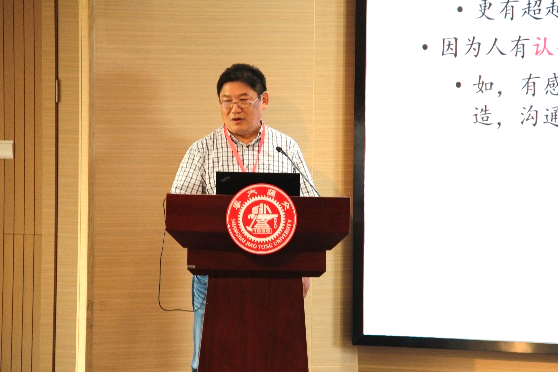
After the plenary talks, seven parallel presentation sessions were held at the symposium. The topics of parallel presentations included appliable linguistics, legal discourse studies, multimodal discourse studies, among others. Around 70 participants presented their researches at the parallel sessions.
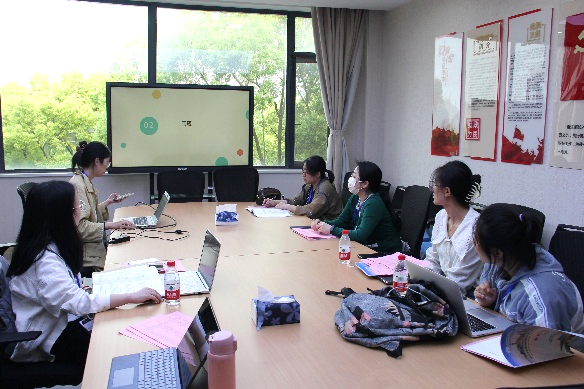
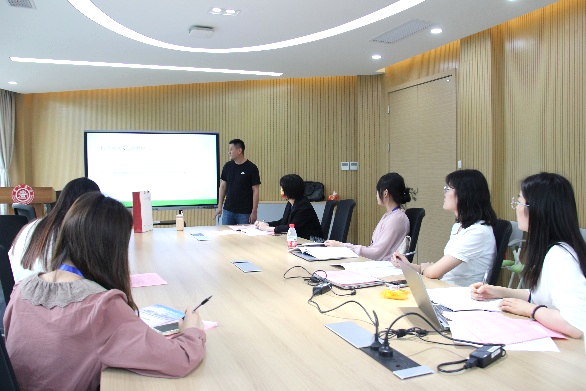
At the closing ceremony, Prof. Yuan Chuanyou from Guangdong University of Foreign Studies gave a speech to conclude the event, and Prof. Wang Zhenhua extended thanks to all the invited speakers and participants for making the symposium a success.
